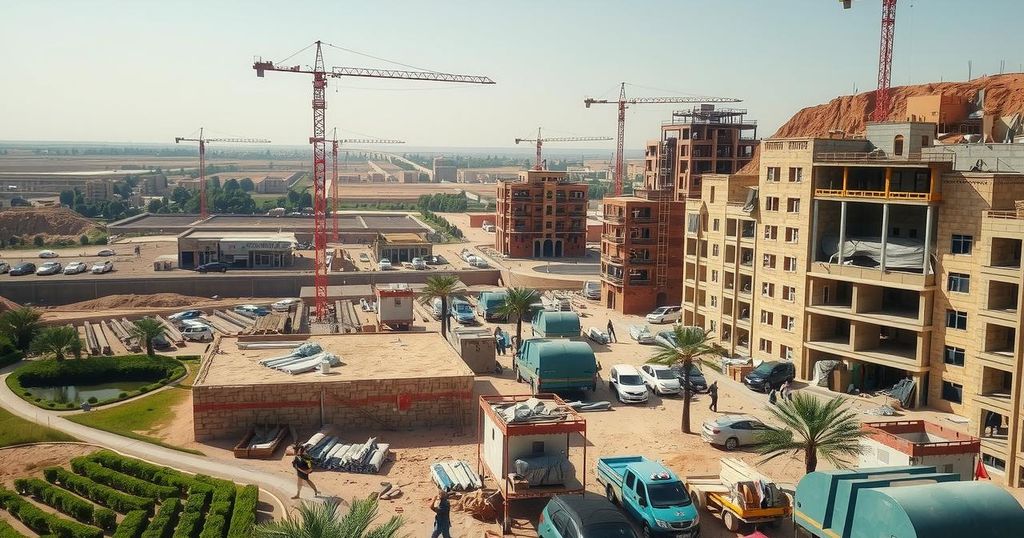Discussing Reconstruction in Syria: Insights from Experts

The Weiser Diplomacy Center at the University of Michigan held a discussion on Syria’s post-civil war reconstruction featuring Qutaiba Idlbi and Dr. Abdalmajid Katranji. They addressed the impact of the civil war, including extensive brain drain, governance challenges, and the need to lift sanctions. The event emphasized the importance of civic engagement and reconstruction strategies to support the new leadership and Syrian society.
On December 8, 2024, the regime of Bashar al-Assad collapsed after years of conflict in Syria, leading to Ahmed al-Sharaa taking leadership. The Weiser Diplomacy Center at the University of Michigan hosted a discussion featuring Qutaiba Idlbi from the Atlantic Council and Dr. Abdalmajid Katranji from Michigan State University on Syria’s reconstruction post-civil war. They emphasized the challenges stemming from a brain drain and the current state-building strategies.
Idlbi highlighted the significant devastation left by the civil war, noting that millions of educated Syrians have fled the country, which he termed one of the worst brain drains since World War II. Despite hardships, he mentioned that many Syrians feel a sense of joy and freedom following the fall of Assad, indicating a complex emotional landscape.
While some Western critics point to Sharaa’s past associations with Al-Qaeda, both Idlbi and Katranji argued that he has severed these ties and is actively combatting extremist groups like ISIS. Katranji shared his humanitarian work in Idlib, stating that a structured approach to rebuilding and civic engagement exists there, contrasting it with the chaotic environment in Assad’s controlled regions.
Katranji’s experiences revealed a lack of civil order under Assad, which hindered effective aid delivery following disasters. He pointed out that the regime’s bureaucratic obstacles often required bribery to operate, highlighting the governance failures compared to Idlib’s relatively functional civil society.
Idlbi contended that, unlike in Iraq, Syrians developed self-governing institutions during the civil war, allowing them to engage in nation-building. He asserted that while the U.S. has failed in previous interventions, there is a potential for constructive American involvement in Syria’s recovery.
Katranji criticized the ongoing sanctions under the Caesar Syria Civilian Protection Act, arguing that they hinder assistance and need to be lifted promptly. He urged for collaboration among global leaders to reach a consensus on sanction removals to avoid creating another power vacuum.
Students, such as Razaan Killawi, co-president of Students Organize for Syria, expressed appreciation for the discussion and emphasized the importance of student engagement in understanding the realities in Syria through accurate reporting and firsthand accounts. This call to action is pertinent given the overwhelming misinformation surrounding the conflict’s current state.
The discussion at the Weiser Diplomacy Center highlighted the complexities of Syria’s reconstruction post-civil war, emphasizing the significant social and political changes since Assad’s regime. Experts underscored the importance of addressing the brain drain and engaging with civil society to facilitate rebuilding efforts. They called for the lifting of punitive sanctions to support these initiatives, while encouraging continued U.S. involvement in a supportive role aligned with the aspirations of the Syrian people.
Original Source: www.michigandaily.com







